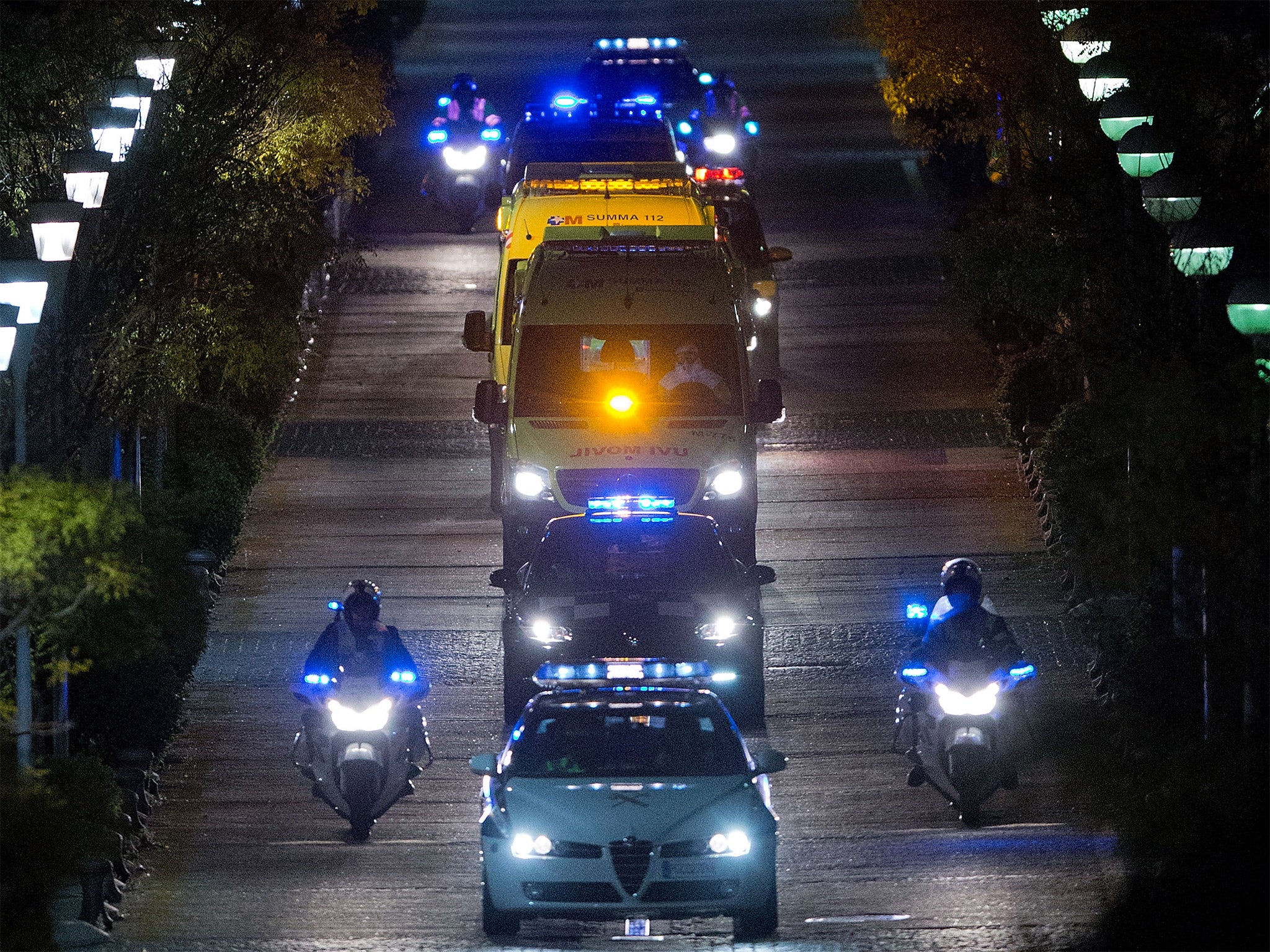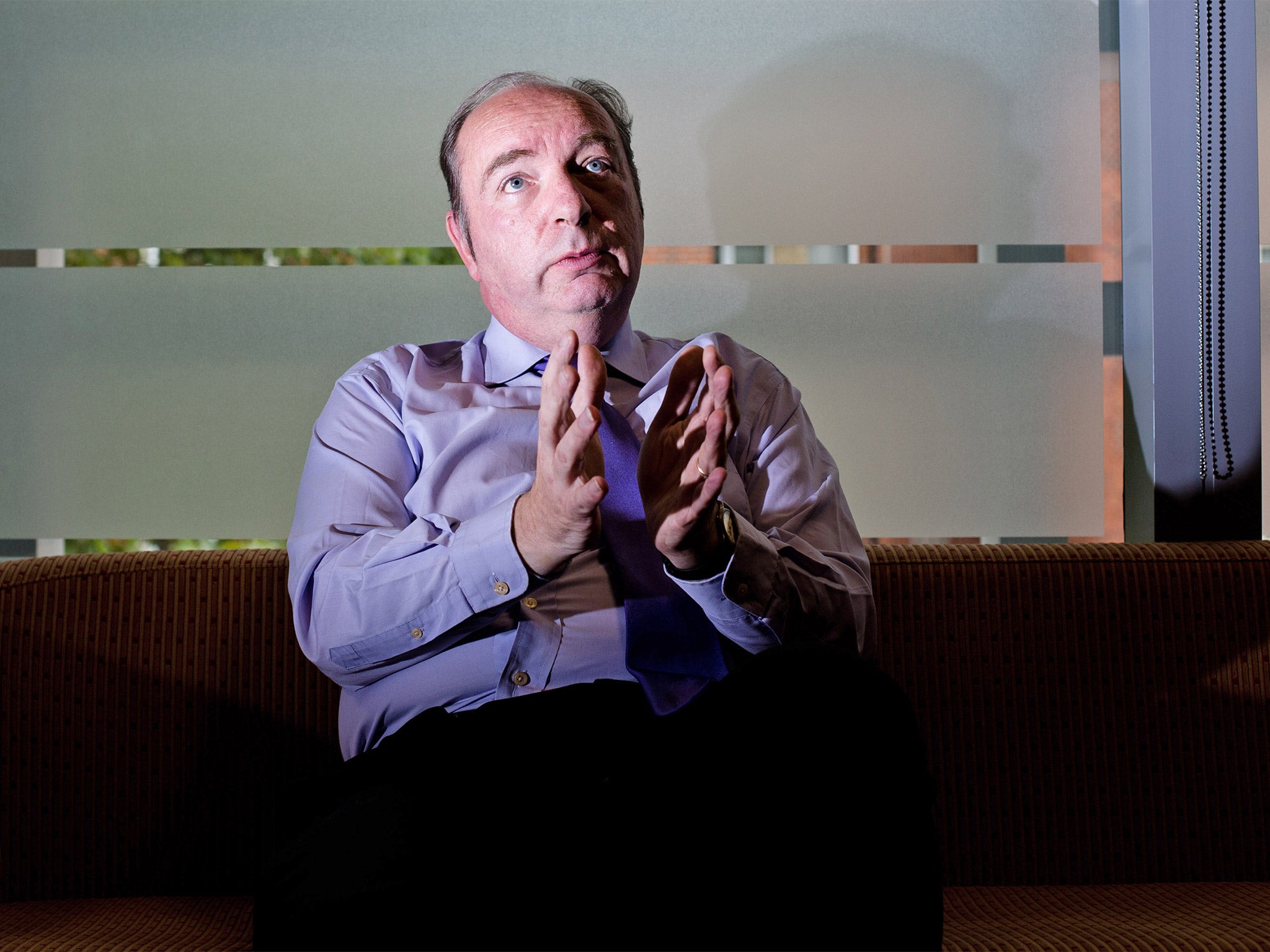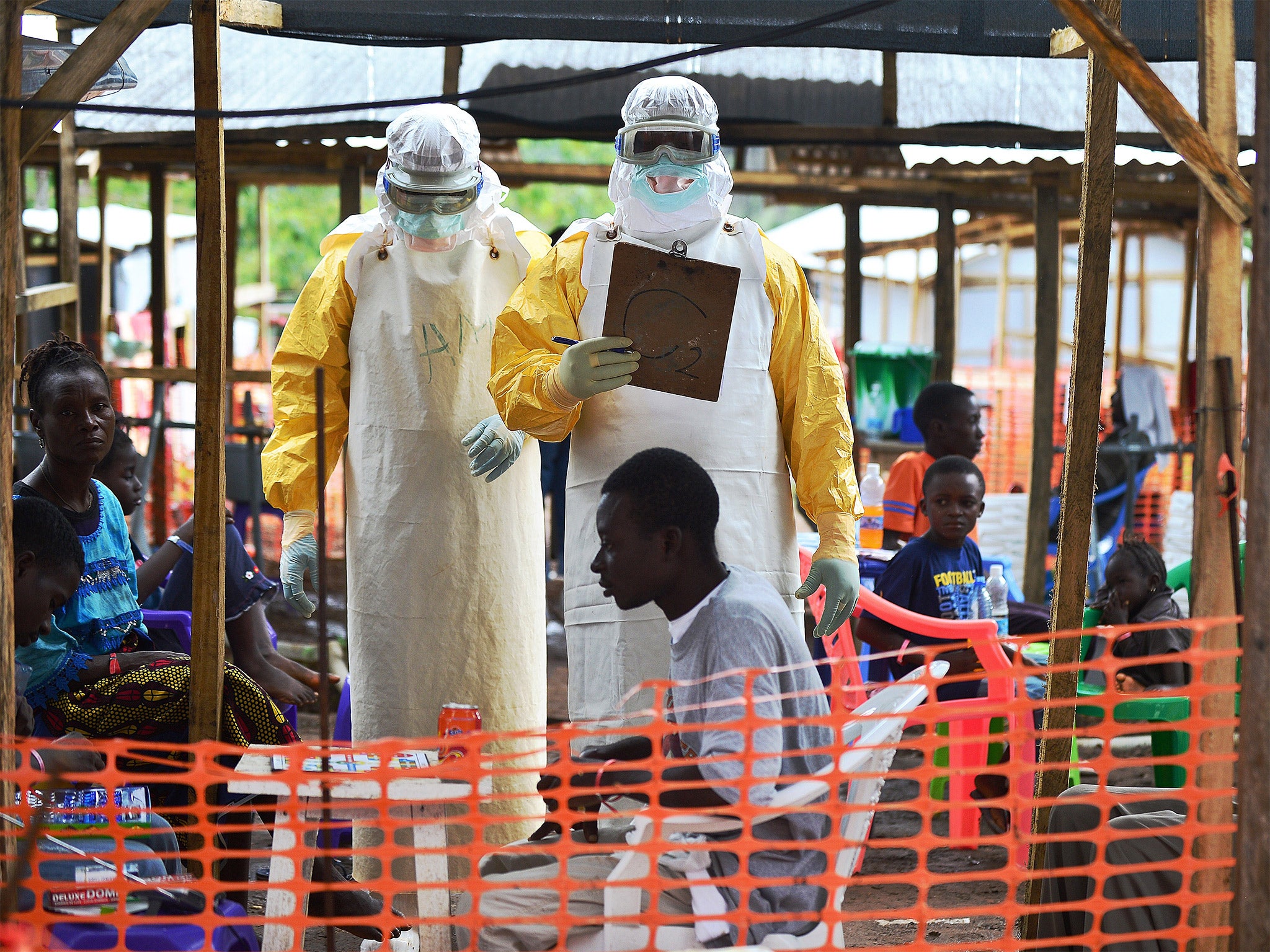Ebola outbreak: Britain must start screening for the virus, says Home Office minister
Pressure for action mounts as Obama announces tougher measures to protect America and Spain reels from first confirmed case of disease contracted outside Africa

A Home Office minister has said Britain should consider introducing screening for Ebola carriers arriving at airports, after a Spanish nurse became the first person to have caught the virus in Europe.
President Barack Obama announced that the United States is to monitor travellers for signs they are carrying the virus, warning that containment of Ebola is “a top national security priority”.
Public Health England said it had no plans to bring in screening for the disease, which has already claimed 3,400 lives in West Africa. Rates of infection are set to increase dramatically.
The Home Office also insisted there would be no change of policy. But Norman Baker, a Liberal Democrat minister in the department, described Ebola’s arrival in Europe as a “very concerning development” and said the case for increasing screening in airports had to be examined. He told The Independent: “We need to consider whether existing controls are adequate.”
The accelerating Ebola crisis will be discussed on Wednesday at a meeting of Cobra, the Whitehall emergencies committee, which will be chaired by David Cameron.
It will examine whether Britain is fully prepared to cope with the virus in this country, as well as what more can be done to tackle its spread in West Africa.
According to research from a group of American universities monitoring the spread of the disease, the UK is the third-most-likely country outside Africa to “import” Ebola.
The Cobra meeting had been arranged before the announcement that a Spanish nurse had contracted Ebola from a patient, but the spread of the virus to Europe will give the meeting extra urgency.

Members of one Spanish health workers’ trade union claimed the protection suits they had used while handling Ebola cases were not of the highest possible standard.
The World Health Organisation’s European director, Zsuzsanna Jakab, warned that further cases on the Continent were inevitable. She said: “It is quite unavoidable … that such incidents will happen in the future because of the extensive travel both from Europe to the affected countries and the other way around.”
Mr Obama’s announcement followed a meeting with health and national security advisers. He told reporters that the administration would increase efforts to ensure medical professionals were prepared to respond appropriately to patients displaying Ebola-like symptoms.
“We’re also going to be working on protocols to do additional passenger screening both at the source and here in the United States,” Mr Obama said.

Although he offered no specific details, it is thought the screenings will include questioning and taking the temperatures of passengers arriving from countries affected by the Ebola outbreak in West Africa.
According to NBC News, the US Centres for Disease Control and Prevention is expected to send extra staff to major international airports in New York, Chicago and Washington to help perform the screenings.
The White House has repeatedly ruled out banning flights to the US from affected countries but, while the chances of an outbreak in the US are “extremely low”, Mr Obama said, “we don’t have a lot of margin for error”.
The President also criticised other governments for being insufficiently “aggressive” in their response to the outbreak in West Africa.
“Countries that think that they can sit on the sidelines and just let the United States do it, that will result in a less effective response, a less speedy response, and that means that people die,” Mr Obama said.
The Labour MP Keith Vaz, the chairman of the Commons Home Affairs Select Committee, said: “As far as I’m concerned any measures – including additional screening – which are felt necessary to reassure the public should be taken.”
At present the UK handles 40 flights a week from West Africa. Most are from Lagos to Heathrow, but there are also services from the Nigerian capital, Abuja, Accra in Ghana and Banjul in the Gambia.
But Public Health England (PHE) said the overall risk of the virus to the UK remained “low” and the country had “robust, well-developed and well-tested NHS systems for managing unusual infectious diseases”.
A spokesman said: “There are no plans to introduce entry screening for Ebola in the UK. This would require the UK to screen every returning traveller, as people could return to the UK from an affected country through any port of entry. This would be huge numbers of low-risk people.
“PHE has provided UK Border Force with advice on the assessment of an unwell traveller on entry to UK.”
Dr Brian McCloskey, director of global health at PHE, said: “UK hospitals have a proven record of dealing with imported infectious diseases. If an Ebola case is repatriated to, or detected in, the UK they would receive appropriate treatment in an isolation unit, with all appropriate protocols promptly activated.”
The aviation world is watching the spread of Ebola with increasing alarm, as travellers’ fears about contracting the disease appear to be hitting bookings.
Join our commenting forum
Join thought-provoking conversations, follow other Independent readers and see their replies
Comments